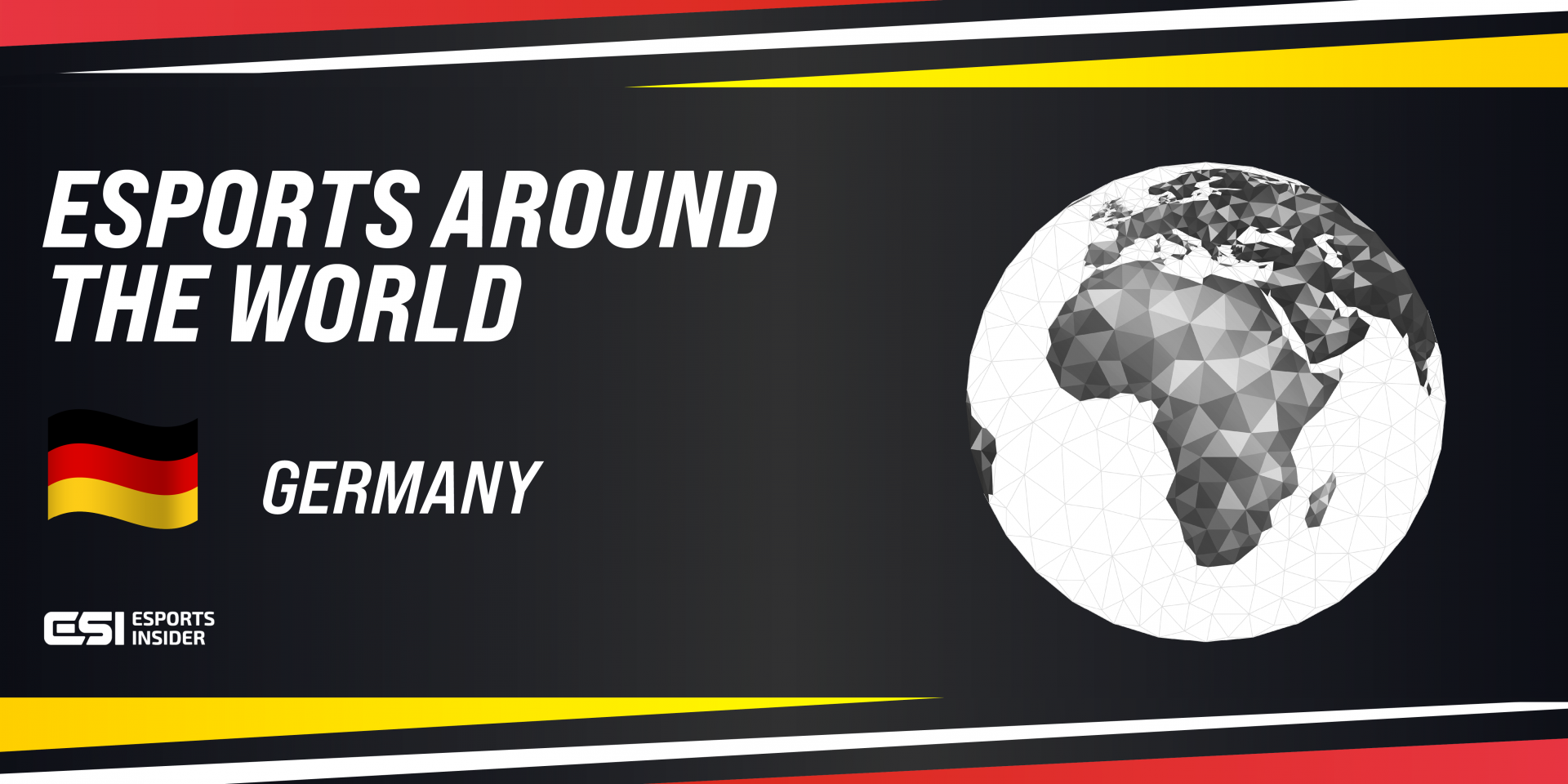Esports Around The World is a series of profiles outlining the esports ecosystem in various countries globally. The series ties into ESI’s international esports business events, which take place around the world.

Introduction
Very few countries match the level of ambition that Asian powerhouses like South Korea and China display when it comes to esports development — but Germany is certainly one of them.
Germany has become widely regarded as a hub for European esports, particularly when it comes to events. The country currently houses some of the largest esports entities, events and leagues in the world. This includes hosting IEM Cologne, numerous ESL One stops and VALORANT Champions 2021.
Moreover, the country is the home of the League of Legends EMEA Championship, the VCT EMEA International League and the headquarters of esports mainstays like ESL Gaming and G2 Esports.
The country’s importance and potential as an esports market is underscored by its stature in the global economy. Germany is an economic powerhouse, with one of the largest economies in Europe by GDP — an important factor in its development as an esports hub.
Highlighting the region’s ambition, the eSport-Bund Deutschland (ESBD) — commonly known in English as eSports Federation Germany — launched in 2017 as a registered association with the mission of promoting Germany’s esports scene.
From a competitive standpoint, Germany has a sizable presence in League of Legends, Dota 2, FIFA and CS:GO.
As of LEC’s 2023 Summer Split, Germany has six players competing in League of Legends’ top division in Europe, the joint highest in the competition alongside France and South Korea. This includes Sergen ‘BrokenBlade’ Çelik (G2 Esports), Joel ‘Irrelevant’ Scharoll (SK Gaming), and Felix ‘Abbedagge’ Braun (EXCEL). Moreover, Berlin International Gaming (BIG)’s emphasis on German talent for its CS:GO roster has developed important players including Johannes ‘tabseN’ Wodarz.
According to a report by Deloitte in 2021, Germany has a 33% esports penetration rate when it comes to exposure amongst the region’s 16-65 demographic.
Moreover, 16% of that demographic stated they watch esports content at least once a week. Whilst the latter statistic is lower than quite a few esports countries, including Spain (31%), the UK (24%) or Italy (27%), Germany’s esports influence lies in its accessibility, competitive ecosystem, and history of hosting major events.

Government Recognition
Esports is held in high regard within Germany, but the scene has still gone through difficulties when it comes to official recognition. In 2018, the German federal government coalition agreed to recognise esports as an official sport. However, following that revelation, the German Olympic Sports Federation (DOSB) stated that esports did not meet the criteria to be recognised as a sporting activity, complicating its official status.
Nevertheless, this hasn’t stopped the government from supporting esports. After the 2018 government announcement, solutions were put in place to make it easier for esports players to gain visas and compete in events. Esports is classified as an ‘event of a sporting nature’ in the Visa Handbook of the German Federal Foreign Office, simplifying the entry process for esports players and support staff.

Notable Tournaments & Leagues
A wide array of high-profile major tournaments are held in Germany. It is home to the prestigious League of Legends EMEA Championship (LEC), it has played host to numerous stops in the ESL One event series, and IEM Cologne plays an important part in the competitive CS:GO calendar.
Notable Esports Organisations
Note that this is a non-exhaustive list and exclusion does not signify an org is not notable.
| Berlin International Gaming (BIG) | MOUZ (mousesports) |
| Eintracht Spandau | SK Gaming |
| G2 Esports | Sprout |
| GamerLegion | Unicorns of Love |

National Associations / Federations
Note that inclusion in this list does not suggest any acknowledgement from ESI of its authority, works or official capacity.

Education Initiatives
Germany offers a choice of different initiatives for higher education. This ranges from competitive opportunities to courses on esports management.
Educational establishments such as HS Mittweida, Macromedia Fachhochschule, Hochschule für angewandtes Management and the German Academic Exchange Service (DAAD), among others, offer degree opportunities in esports and esports management.
Additionally, Uniliga, originally University eSports Germany, is a collegiate esports organiser for German universities. It holds inter-university championships in major esports titles and a collegiate infrastructure for students to engage in.
This is a preliminary country profile and will be augmented with additional information over time. If you have any suggestions or feedback for this profile, please get in touch at info@esportsinsider.com. Article updated: August 11th 2023. The original article was published on April 28th 2022.
